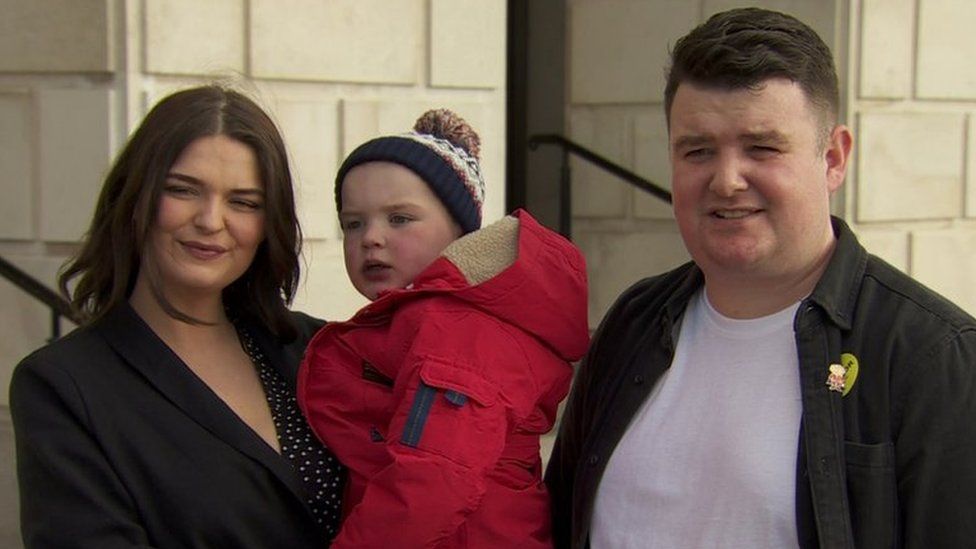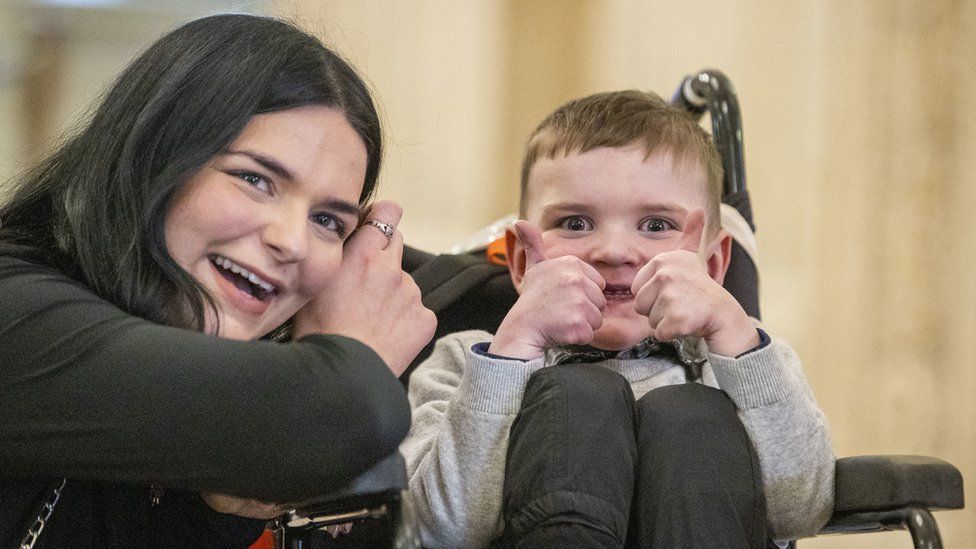A law that would introduce a new opt-out organ donation system to Northern Ireland is experiencing ongoing delays.
People will automatically become potential donors under Dáith's Law unless they specifically state that they do not want to be, according to the law.
The Stormont impasse has prevented the legislation from becoming law, which was scheduled to happen in the spring of 2023 after it was passed in February 2022.
The UK's sole remaining unimplemented opt-out region is Northern Ireland.
Why is the law taking so long to be introduced, and what is its history?
In 2016, Dáith MacGabhann was born with hypoplastic left heart syndrome, a condition in which the left side of the heart did not develop normally.
The six-year-old has been waiting for a heart transplant for about five years, and his family has been pushing for a change in the laws governing organ donation since 2018.
In honor of his family's advocacy work, Stormont assembly members decided to honor him by renaming the Organ and Tissue Donation (Deemed Consent) Bill after him in February 2022.
When Jo-Anne Dobson, an Ulster Unionist assembly member at the time, introduced a private member's bill on organ donation, the Northern Ireland Assembly first discussed an opt-out organ donation system.
When Dáith MacGabhann's family started pushing for a soft opt-out law two years after that failed after being rejected by Stormont's Health Committee, the topic was brought up once more.

Except for the Democratic Unionist Party (DUP), which some DUP members claimed they preferred an opt-in organ donation system, all of Stormont's parties supported the new legislation.
However, Paul Givan of the DUP, who was first minister at the time, declared in June 2021 that he had authorized sending the legislation to the assembly so that it might eventually become law.
At the time, Robin Swann, who was the health minister, stated that changing the rules could alter 180 lives annually.
The law was approved by the assembly in February 2022, but additional legislation is required to define which organs and tissues are subject to the opt-out system.
It is necessary for the system to function.
In the same month that the law completed its final stage in the assembly, Paul Givan, the first minister of Northern Ireland, resigned in protest of the Northern Ireland Protocol as part of the DUP.
Following the Stormont election in May 2022, the DUP persisted in its boycott by obstructing the assembly's vote to elect a Speaker, preventing Northern Ireland from having a power-sharing government.
Legislation, including the supplementary legislation required to pass Dáith's Law, cannot be passed without a Speaker.

The DUP has argued that Westminster can handle the legislation governing organ donation in Northern Ireland.
While the assembly might have if a speaker is elected, Northern Ireland Secretary Chris Heaton-Harris has said that would be a "long and arduous process.".
After the DUP declined to support a Speaker nomination on February 14.
Only those who have given their express consent can have their organs donated in Northern Ireland. This usually involves signing up for the NHS Organ Donor Register or communicating with one's family.
In the absence of that, it is up to the patient's family to make the decision.
According to Dáith's Law, unless they specifically state otherwise, all adults in Northern Ireland would be eligible to donate their organs after passing away.
Ninety percent of Northern Ireland residents support organ donation, but only fifty percent have signed the Organ Donor Register, according to statistics released by the Public Health Agency in 2022.
In addition, it mentioned that roughly 10 to 15 people pass away each year while awaiting a transplant.
The soft opt-out organ donation program was first implemented in Wales in December 2015, making it the first country in the UK to do so.
The number of donations under the new law was "encouraging," the Welsh health secretary said a year later, but it was too soon to say how effective the legislation would be.
In May 2020, England enacted a law of a similar nature. In the first year, 296 donations were made in accordance with the law, making up 29% of all donors (1,021) during that time.
Due to the Covid-19 pandemic, opt-out organ donation became law in Scotland in March 2021, a little later than anticipated.
In November 2022, the Human Tissue Bill was introduced in the Republic of Ireland.
The Oireachtas, the Irish parliament, is currently debating it.







